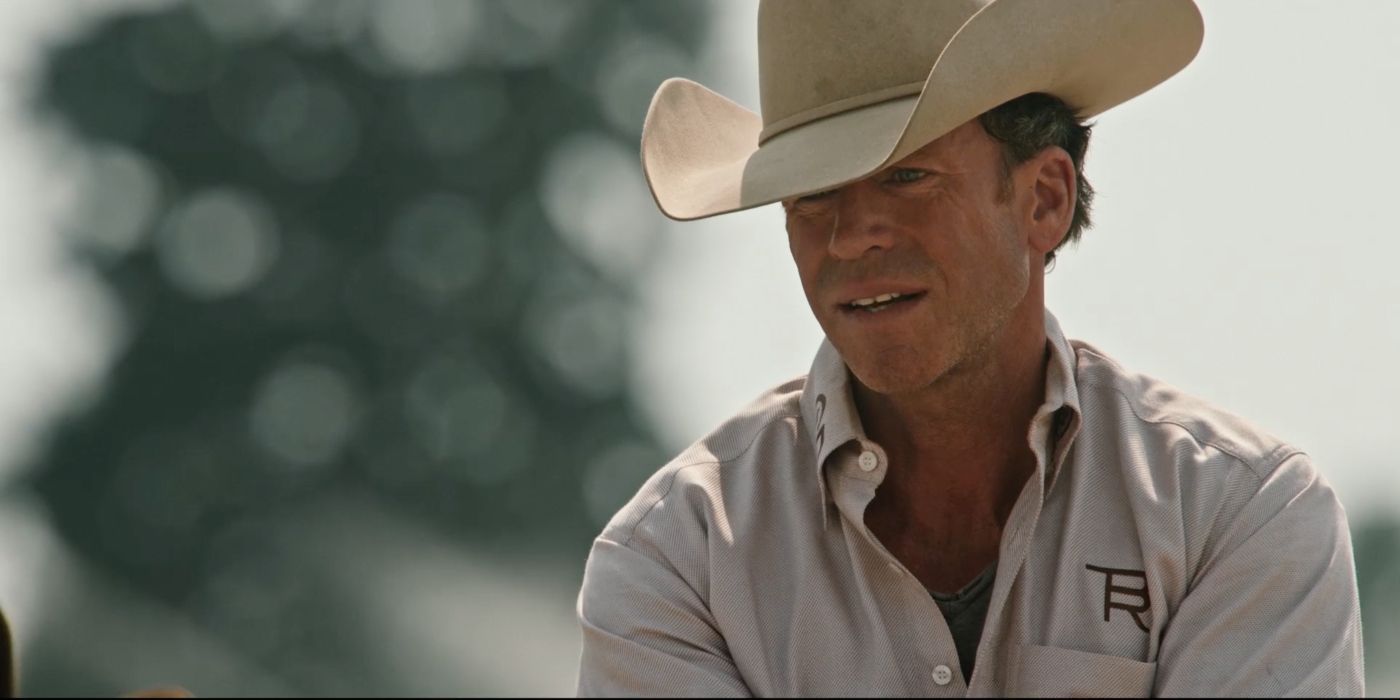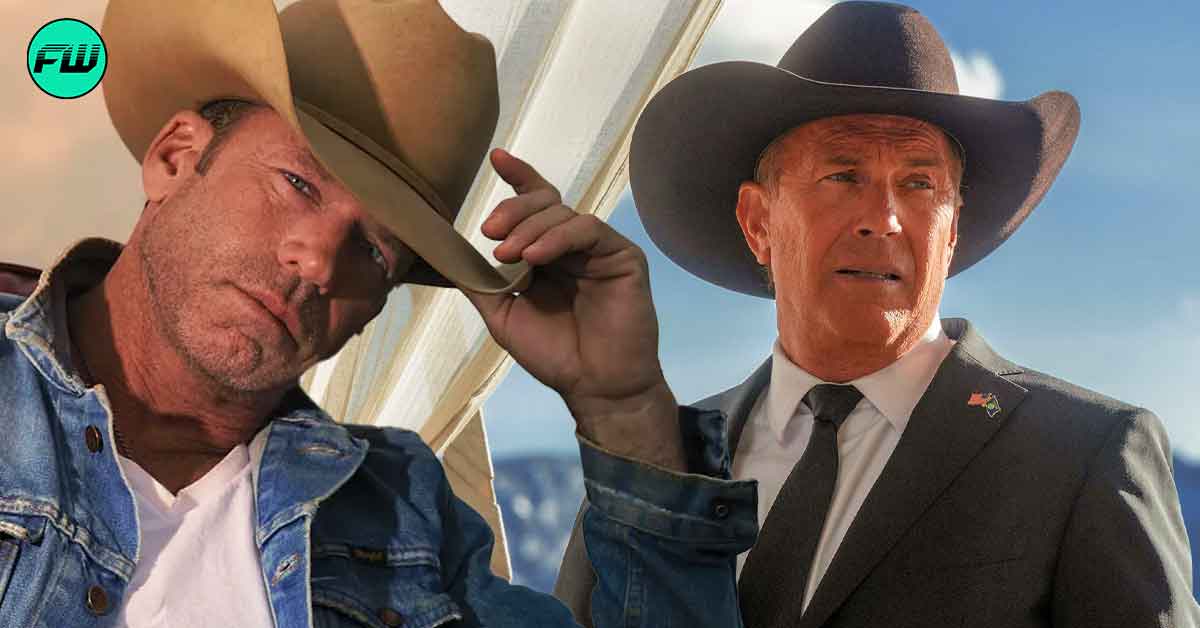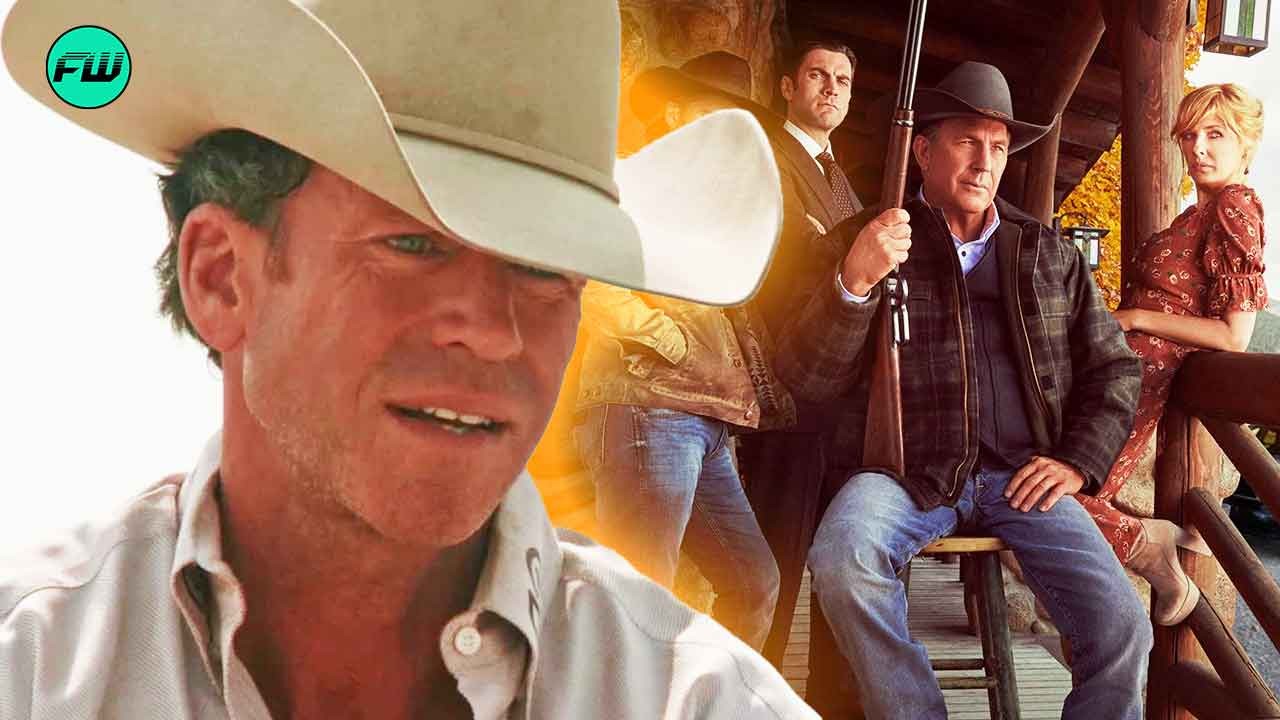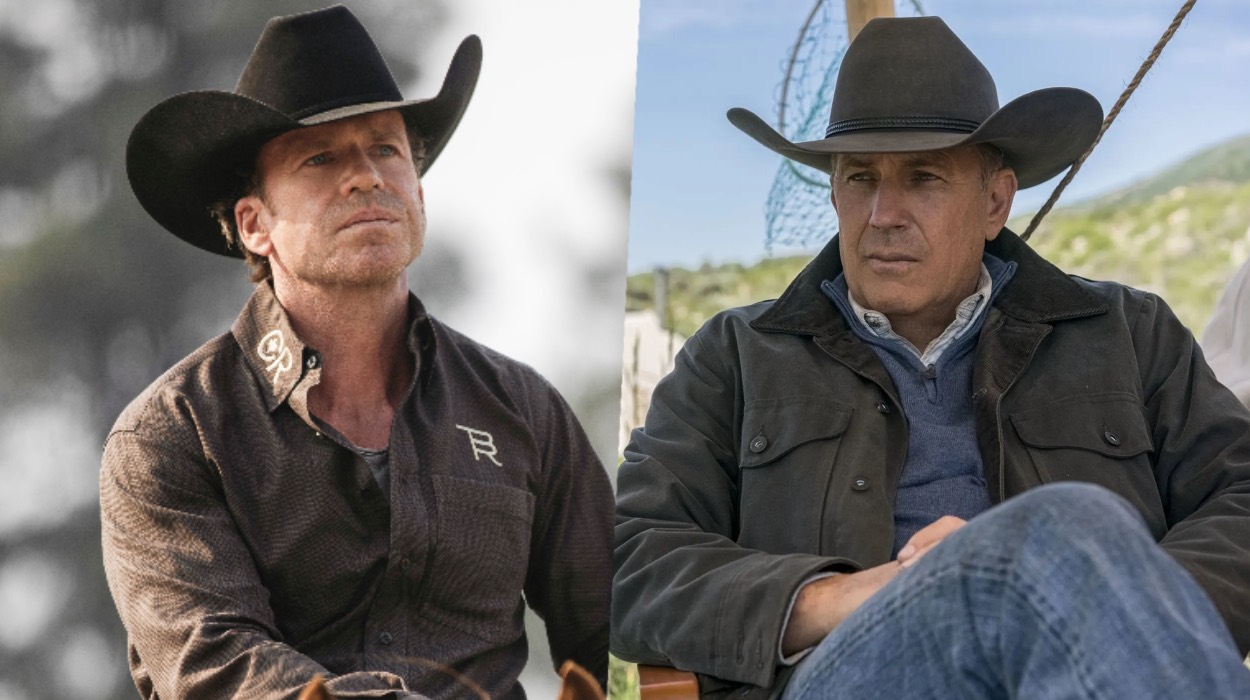For years, Yellowstone wasn’t just a TV show; it was a cultural phenomenon, a neo-Western titan that commanded a fervent fanbase, record-breaking viewership, and an empire reportedly generating nearly $3 billion in revenue. It was a golden goose, a relentless storytelling machine that seemed destined to run indefinitely. Yet, in late 2024, against all commercial logic and passionate pleas, the flagship series concluded its historic run with a truncated final season. The reasons behind this abrupt end have been shrouded in mystery, fueled by whispers of behind-the-scenes feuds and the tumultuous exit of lead star Kevin Costner.
But now, the silence has been shattered. Luke Grimes, the stoic Kayce Dutton himself, has dropped a truth bomb that will reverberate across Hollywood: Yellowstone ended not because its story was told, not because its audience waned, but because Taylor Sheridan, the brilliant yet uncompromising architect of this universe, unilaterally pulled the plug – defying the desires of virtually everyone involved. This isn’t just a show ending; it’s a raw, high-stakes power play that has forever reshaped the landscape of prestige television and solidified Sheridan’s controversial reign.

The Undeniable Truth: Nobody Wanted Yellowstone To Die
On June 24, 2025, the entertainment world paused as Luke Grimes, the beloved actor who embodied Kayce Dutton for five explosive seasons, delivered a confession that laid bare the raw truth behind Yellowstone’s untimely demise. Speaking to PEOPLE, Grimes didn’t mince words: “Nobody wanted it to be over when Yellowstone came to an end last year. I don’t think the fans wanted it to be over. A lot of us actors kind of didn’t want it to be over, and the studio and network certainly didn’t want it to be over.”
This statement, coming from a core cast member, confirms what many fans and industry insiders had long suspected: the ending of Yellowstone was an enforced conclusion, not a natural evolution. This was a show that had everything going for it. Its loyal fanbase was more akin to a cult following, its viewership numbers consistently dwarfed competitors, and it had spawned a sprawling, lucrative franchise with prequels like 1883 and 1923 that were also critical and commercial darlings. Per reports, the Yellowstone universe, under Sheridan’s meticulous hand, has generated an estimated $2.9 billion in revenue, with a staggering $700 million in pure profit from streaming deals, merchandise, events, and spin-offs. For any studio, ending such a financial juggernaut is nothing short of a commercial heresy.

Yet, the decision was made. The roots of this shocking conclusion can be traced back to a “messy behind-the-scenes standoff,” most notably the highly publicized friction with lead star Kevin Costner, who played the iconic patriarch John Dutton. This friction, reportedly stemming from scheduling conflicts as Costner focused on his passion project Horizon: An American Saga and alleged creative disagreements over John Dutton’s character arc, sent the show into an agonizing hiatus in 2023. When Yellowstone finally returned in late 2024, it was only for a mere six final episodes, a conclusion that felt less like a grand finale and more like a forced, truncated farewell to a story with so much more to tell.
Taylor Sheridan’s Iron Will: Why The Architect Pulled The Plug Anyway
If the studio, the network, the cast, and the millions of devoted fans all wanted Yellowstone to continue its reign, why then did Taylor Sheridan, the undisputed creative force behind the phenomenon, “pull the plug”? Luke Grimes’ candid reveal adds significant weight to what had previously been speculation: that the veteran writer and showrunner ended the original series entirely on his own terms. This wasn’t a show being cancelled; it was a show being concluded by its singular visionary, regardless of external pressures or financial incentives.

The motives behind such a daring, almost defiant, move are ripe for speculation. One prevailing theory is that ending Yellowstone was Sheridan’s ultimate play to move decisively beyond the “Costner drama” that had plagued the final seasons. By concluding the main series, Sheridan regained full, unimpeded creative control, freeing himself from contractual obligations and perceived compromises that may have stifled his artistic vision. This allowed him to pivot the sprawling Yellowstone franchise into bold new directions, unburdened by past conflicts or the demands of a single, aging star. It was a strategic retreat that, paradoxically, asserted absolute dominance. To walk away from a “cash cow” of this magnitude, against the wishes of those holding the purse strings, demonstrates an unprecedented level of creative autonomy and an unshakeable belief in his own storytelling prowess. Sheridan proved he wasn’t merely a showrunner; he was an architect, willing to tear down the very foundation if it meant building something grander, entirely on his own blueprint.
Kayce Dutton’s Shocking Rebirth: The Spinoff No One Saw Coming
The seismic shift orchestrated by Taylor Sheridan even caught his own stars by surprise. Luke Grimes revealed a deeply personal journey of letting go of Kayce Dutton, a character he had embodied for seven years. “On the last day of shooting, I thought it was my last day as Kayce… It was over to me,” Grimes told PEOPLE. He had genuinely wrapped his mind around saying goodbye, even packing away Kayce’s iconic cowboy gear for good, believing his time in the Dutton world was definitively over.
But Taylor Sheridan operates on a different wavelength. Months later, a “surprise pitch” landed, pulling Grimes back into the heart of the Dutton universe with a fresh, electrifying story arc: the spinoff Marshals. Grimes’ excitement for this new venture is palpable. He made it clear that Marshals isn’t going to be some “slow-burn domestic drama” or a “Kayce’s Happy Life” show. Instead, Sheridan promised a “real story” for a “soul-restored Kayce,” now freed from the suffocating burden of the Dutton ranch, but still carrying the complex, often lethal, weight of his past. This new direction hints at a return to the edgier, more formidable aspects of Kayce’s character from Yellowstone’s early days, promising a dynamic narrative that genuinely “roped” Grimes in. It’s a testament to Sheridan’s storytelling genius that even when he seemingly ends one chapter, he’s already meticulously crafting the next, enticing his loyal collaborators with visions of uncharted, compelling territory.

The Sheridan Empire Expands: A New Era For Prestige TV
At first glance, Taylor Sheridan’s decision to end Yellowstone seemed like a potential misstep, a baffling move that defied all conventional wisdom in the cutthroat world of television. Why dismantle a proven, revenue-generating juggernaut? But in retrospect, as the dust settles and Sheridan’s grand vision continues to unfold, it’s clear this was arguably the most career-defining move he has ever made. He didn’t just walk away from a cash cow; he masterfully pivoted, proving that his creative power was bigger than any single series.
By consciously concluding his flagship show on his own terms, Sheridan established himself as more than just “the guy behind Yellowstone“; he became the undeniable face of the modern TV frontier. Letting go of Yellowstone gave him the essential breathing room, freeing him from being confined to one narrative, one cast, or even one specific network. He effectively transformed a single neo-Western hit into a sprawling, interconnected cinematic universe.
Today, his empire is vast and undeniable: 1923 continues to pull impressive numbers, Lawmen: Bass Reeves showcased his range into historical anthologies, Landman is making its mark, and The Madison is already in production, expanding his thematic reach even further. This isn’t just prolific writing; it’s empire-building on an unprecedented scale. Furthermore, Sheridan’s influence now stretches across multiple networks and platforms – from Paramount Network to Paramount+ and even CBS (with Y: Marshals set to air on network TV in Spring 2026). This kind of strategic dominance, the ability to create, command, and distribute content across diverse media landscapes, is what truly separates mere creators from visionary architects.
In walking away from Yellowstone, Sheridan proved it was never just about the show itself. It was about his name, his vision, and his unparalleled ability to craft compelling narratives that resonate with mass audiences. He has ensured his legacy will be etched into television history not just as a successful showrunner, but as the audacious auteur who single-handedly redrew the literal map of prestige TV, proving that true power lies in the control of the story, no matter the cost.
Was Taylor Sheridan’s controversial decision to end Yellowstone a calculated genius move, or a ruthless gamble that betrayed millions of fans? Did he truly sacrifice the main show to build a bigger empire? Unleash your fury and raw opinions below!